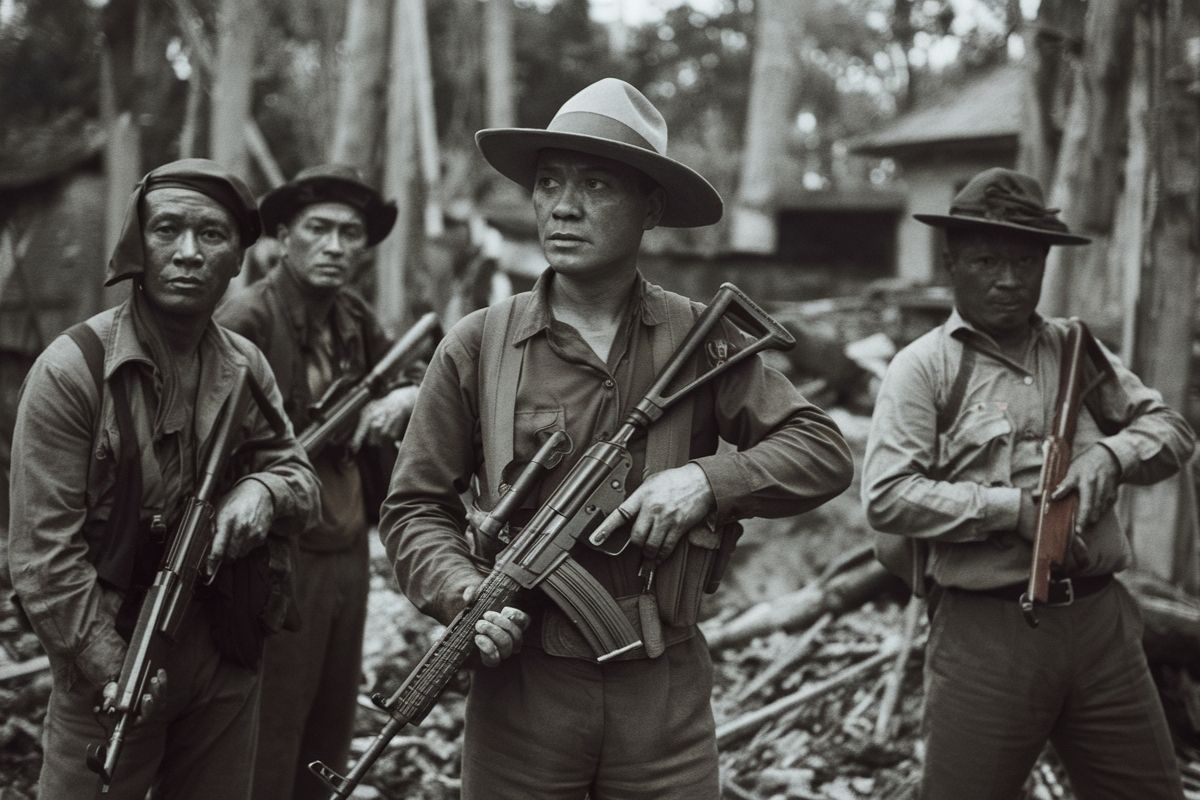
What was the Madiun Affair? The Madiun Affair was a significant event in Indonesian history, taking place in 1948. It involved a rebellion led by the Communist Party of Indonesia (PKI) against the Indonesian government. This uprising occurred in the town of Madiun, located in East Java. The conflict arose due to political tensions between the communists and the Indonesian government, which was striving to establish a unified nation post-independence. The rebellion was swiftly crushed by government forces, leading to the capture and execution of key PKI leaders. This event marked a crucial turning point in Indonesia's struggle to maintain national unity and combat internal threats.
Key Takeaways:
- The Madiun Affair was a 1948 conflict between the Indonesian government and the Communist Party, leading to a crackdown on the PKI and shaping Indonesia's political landscape.
- The rebellion's suppression strengthened the government's control, weakened the PKI, and heightened tensions between communist and non-communist factions in Indonesia.
What Was the Madiun Affair?
The Madiun Affair was a significant event in Indonesian history that took place in 1948. It involved a conflict between the Indonesian government and the Communist Party of Indonesia (PKI). This event had far-reaching consequences for the country's political landscape.
-
The Madiun Affair occurred in September 1948 in the city of Madiun, East Java.
-
It was a rebellion led by the Communist Party of Indonesia (PKI) against the Indonesian government.
-
The conflict was part of a larger struggle for power in post-independence Indonesia.
-
The PKI aimed to establish a communist state in Indonesia.
-
The rebellion was quickly suppressed by the Indonesian military.
Key Figures in the Madiun Affair
Several important figures played crucial roles in the Madiun Affair. These individuals were instrumental in shaping the events that unfolded during this period.
-
Musso, a prominent communist leader, was one of the main figures behind the rebellion.
-
Amir Sjarifuddin, a former prime minister of Indonesia, also supported the PKI's cause.
-
General Sudirman, the commander of the Indonesian National Armed Forces, led the military response to the rebellion.
-
President Sukarno played a key role in addressing the political crisis caused by the Madiun Affair.
-
Sutan Sjahrir, another influential political figure, opposed the PKI's actions.
Causes of the Madiun Affair
Understanding the causes of the Madiun Affair helps to shed light on why this conflict erupted. Several factors contributed to the tensions that led to the rebellion.
-
The struggle for power between different political factions in Indonesia was a major cause.
-
Economic hardships and social unrest also fueled the conflict.
-
The influence of global Cold War politics played a role in the PKI's actions.
-
The PKI's desire to establish a communist state clashed with the Indonesian government's vision.
-
Internal divisions within the Indonesian government contributed to the instability.
Consequences of the Madiun Affair
The Madiun Affair had significant consequences for Indonesia. These outcomes affected the country's political landscape and its future direction.
-
The rebellion's suppression strengthened the Indonesian government's control.
-
The PKI's influence was significantly weakened after the affair.
-
Many PKI members were arrested or killed during and after the conflict.
-
The event led to increased tensions between communist and non-communist factions in Indonesia.
-
The Madiun Affair highlighted the challenges of maintaining national unity in post-independence Indonesia.
Legacy of the Madiun Affair
The legacy of the Madiun Affair continues to be felt in Indonesia. This event has left a lasting impact on the country's history and politics.
-
The Madiun Affair is often cited as a key moment in Indonesia's struggle against communism.
-
It influenced the Indonesian government's policies towards communist movements in the future.
-
The event is remembered as a cautionary tale about the dangers of political division.
-
The Madiun Affair has been the subject of numerous historical studies and debates.
-
It remains a significant part of Indonesia's national narrative and collective memory.
Final Thoughts on the Madiun Affair
The Madiun Affair stands as a pivotal moment in Indonesian history. It highlighted the intense political struggles and ideological battles of the late 1940s. This event wasn't just a local skirmish; it had national implications, shaping the future of Indonesia's political landscape. Understanding these historical facts helps us appreciate the complexities of Indonesia's journey to independence and democracy. The affair also underscores the importance of unity and the dangers of ideological extremism. By studying such events, we gain valuable insights into the challenges faced by nations during times of transition. The Madiun Affair serves as a reminder of the sacrifices made and the resilience shown by those who fought for a better future. Let's continue to learn from history, ensuring that the lessons of the past guide us toward a more peaceful and just world.
Frequently Asked Questions
Was this page helpful?
Our commitment to delivering trustworthy and engaging content is at the heart of what we do. Each fact on our site is contributed by real users like you, bringing a wealth of diverse insights and information. To ensure the highest standards of accuracy and reliability, our dedicated editors meticulously review each submission. This process guarantees that the facts we share are not only fascinating but also credible. Trust in our commitment to quality and authenticity as you explore and learn with us.
